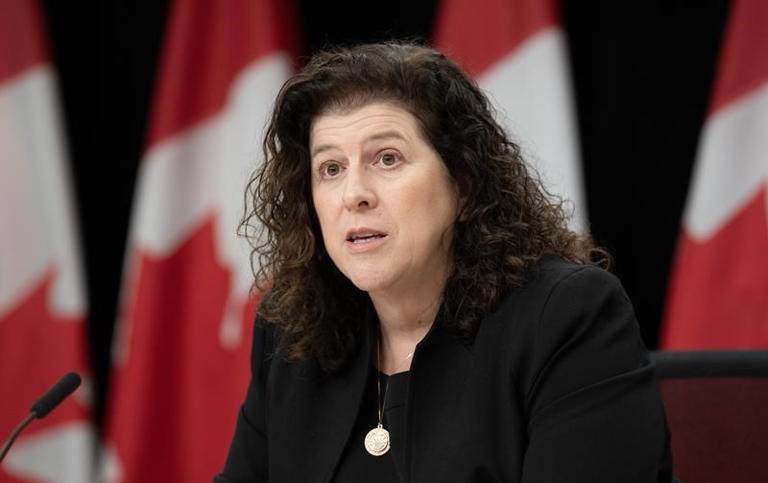
Jason Wilson
New documents have shed light on the origins and inner workings of the shadowy Society for American Civic Renewal (SACR), including methods for judging the beliefs of potential members on topics such as Christian nationalism, and indications that its founders sought inspiration in an apartheid-era South African white men-only group, the Afrikaner-Broederbond.
They also show that Boise State University Professor and Claremont thinktank scholar Scott Yenor tried to coordinate SACR’s activities with other initiatives, including an open letter on “Christian marriage”.
One expert says that one of the new documents – some previously reported in Talking Points Memo – use biblical references that suggest a preparedness for violent struggle against the current “regime”.
The SACR is a secretive far-right men-only organization with an emphasis on Christian nationalism and a desire to open branches across the US.
The Guardian has previously reported on SACR’s close links to the Claremont Institute, an influential rightwing thinktank with fellows who have participated in attempts to overturn the 2020 election and promoted the idea that an authoritarian “Red Caesar” might redeem a US republic they see as decadent.
SACR’s origins appear to date to the latter half of 2020, with key milestones in the group’s development coming over the following 18 months.
And there are indications that the inner circle of the group sought inspiration from earlier iterations of Christian nationalism in authoritarian states.
As previously reported in the Guardian, Skyler Kressin, a tax consultant based in Coeur d’Alene, Idaho, appears to play a central administrative role in SACR. Idaho and Texas company records show that Kressin incorporated lodges in Boise, Coeur d’Alene and Dallas; serves as a director of the Coeur d’Alene and Dallas lodges; and was named as the principal officer of the parent organization on its 2020-21 tax return.
On 30 October 2020, Kressin wrote an email to Yenor with the question “that good?”, along with a screenshot of an Amazon listing for Super-Afrikaners, a book by the investigative journalists Ivor Wilkins and Hans Strydom.
First published in 1978, Super-Afrikaners exposed the workings of South Africa’s Broederbond, a secretive, exclusive, men-only network that promoted the interests of white Afrikaners in that country and which is credited with a significant role in bringing the National party – the architects of apartheid – to power.
Within half an hour, Yenor replied: “That’s the one”.
The Guardian contacted Scott Yenor with detailed questions on aspects of this reporting, including whether or not the Afrikaner Broederbond had been an inspiration for SACR.
He did not respond directly to most of those questions, but on the matter of SACR’s secrecy, he wrote in an email: “We maintain confidentiality because we know talentless punks like you would pose ridiculous, bad-faith questions meant to stoke your unhinged fever dreams and incriminate us and even unaffiliated people.”
Yenor continued: “Lazy propagandists who disregard ethics in journalism don’t deserve detailed responses.”
The Guardian invited Yenor to respond to the initial questions.
SACR’s rules and vetting process
In the early part of 2021, Yenor drafted documents that firmed up SACR’s purpose and character.
To a 27 April 2021 email sent to himself and his wife at her employment address, Yenor attached a document entitled “Working membership and recruiting guide for chapter leadership”.
In spelling out SACR’s rules, the document reveals the high value the organization places on secrecy. It says that “all discussion is confidential unless clearly noted otherwise”; and “all names of attendees are strictly confidential”. The document even says that members should withhold information from prospective members, instructing that members should “never reveal the names of other Chapter members to prospects”, and “never reveal national or chapter initiatives to prospects – speak only in general terms about our objectives and mission”.
The document also lays out procedures for vetting such prospects. After chapter leaders have decided that a prospect is “worthy of consideration”, they should be invited to a chapter event.
The document says that at that point, members should “gauge alignment and fit” with questions such as “What are your thoughts on Christian nationalism?”, “Comment on the Trump presidency and what it entails for the future”, and “Describe the dynamic of your household in terms of your role and that of your wife.”
In the first section – “membership criteria” – the document says membership in the group is “predicated on political alignment and faithfulness to the Christian religion, combined with virtue and with any of community influence, capability, or wealth”.
The document elaborates on each of these criteria.
Alignment is “deference to and acceptance of the wisdom of our American and European Christian forebears in the political realm, a traditional understanding of patriarchal leadership in the household, and an acceptance of traditional natural law in ethics”.
Natural law is a view with a long history on the right which holds that fundamental moral principles arise from God or nature, not from human reflection or politics. It is a view that Claremont scholars have attempted to provide.
Faithfulness also has a patriarchal edge in SACR’s definition: it is “submission to the authority and standards of behavior of a particular Trinitarian Christian body”, but also “taking ownership as head of the household in terms of leading regular prayer and spiritual reading and reflection”.
Influence is defined as “the ability to make a mark primarily on culture and social discourse but also in politics and business. The positions here can range from equity ownership in productive enterprises to positions of influence in cultural, religious and intellectual institutions.”
Recruiting efforts for the group included visits to Boise from out-of-town collaborators.
A 19 March 2021 email from Yenor lays out a draft schedule for a visit to Boise by Aaron Renn, senior fellow and editor of “theocon” website American Reformer – co-founded by Nate Fischer – and a former senior fellow at the Manhattan Institute.
Plans included “dinner at Epi’s”, a Basque restaurant in Boise; a meeting with representatives of the Idaho Freedom Foundation, a far-right thinktank; and a guest lecture by Renn to Yenor’s students.
Also planned were “drinks with SACR possibles” where Yenor anticipated a “soft sell as per Skyler’s method”, a comment which is not explained further.
The documents indicate Yenor had worked on putting together a group of “SACR possibles” ahead of Renn’s visit.
In a 19 March 2021 exchange, Yenor and his son Jackson workshop the wording of an invitation to prospective SACR members to an evening talk at a local “classical Christian” academy, the Ambrose school. While Scott Yenor’s original had “a national movement with national ambitions”, Jackson Yenor replied with the recommendation: “Say goals instead of ambitions. These guys are ‘goal oriented’ business people, not Machiavelli.”
Further on, the text advised prospective recruits that “chapters will unite public-spirited men who are interested in doing the work of civic renewal. This might involve shoring up teetering institutions. It might involve seeking to turn corrupt institutions.”
The Ambrose School is a “classical Christian” academy in Meridian, on the western edge of the Boise metro area, where Yenor’s wife Amy works as an events coordinator.
The draft invitation does not indicate any date for the drinks meeting, but Yenor’s visit happened less than three weeks after Yenor was working on the text.
The Guardian contacted Boise State University to ask whether there were any policies about faculty combining guest lecturer visits with political activism, but there was no immediate response.
Other documents appear to be connected to SACR recruiting.
On several occasions, Yenor emailed a link to the sacr.us domain with no further context or explanation in the email text. One such email was sent to the Gmail address of the chief executive of a civil engineering company in Pennsylvania. Another was sent to a lawyer and former justice department employee in Tallahassee, Florida.
Christian nationalist prayers
An April 2021 email Yenor sent to his wife’s work address has an attached PDF – “SACR-prayers”. The document features a “long prayer – formal and inaugural occasions” and a “short prayer – regular meetings”.
The long prayer draws biblical and historical parallels for SACR’s activities: “May God unite us in this mission as Joshua’s men when they defeated the mighty walls of Jericho, as Nehemiah’s men who rebuilt the walls of Jerusalem, as St Constantine’s men when they conquered in the sign of the cross. May the light of Christendom be restored in our homeland, and may America not fall to those who hate God.”
Brad Onishi is the author of Preparing for War, a critical account of Christian nationalism, the host of the Straight White American Jesus podcast, and an academic with appointments at UC Berkeley and the University of San Francisco. He is also a self-described former Christian nationalist.
In a telephone conversation he said that the prayers include “coded” references that may function as justifications of violence.
Explaining the reference to the story of the conquest of Jericho in the book of Joshua, Onishi said: “What happens when the walls fall down? Joshua’s men go in and kill everyone: men, children, women, animals.
“It’s an attempted genocide, right?”
“In that prayer they’re saying we’re Joshua’s men. We’re the type of men who trust God,” Onishi added.
“And when God, when God gives us the signal, we’re going to go kill everybody. That’s what we do.”

